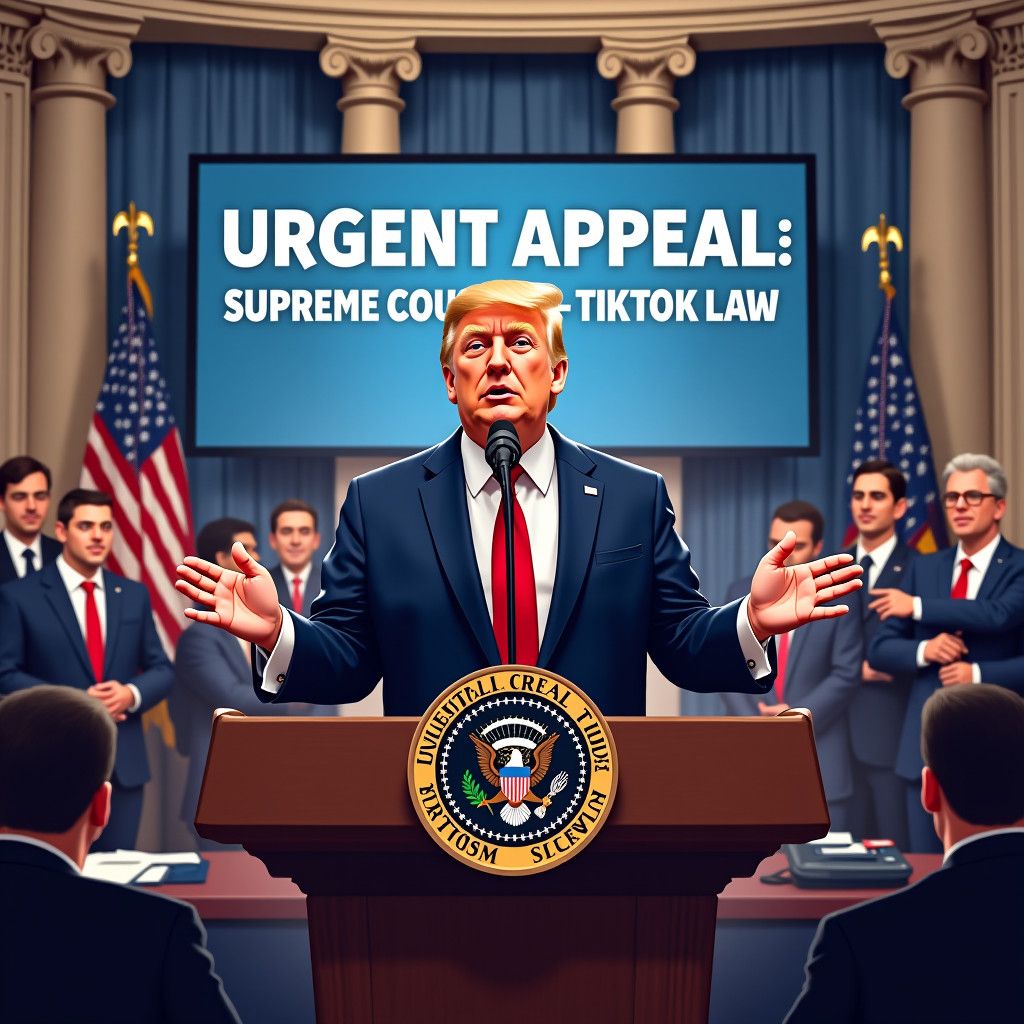In a notable shift in the ongoing battle over TikTok in the United States, former President Donald Trump has publicly urged the Supreme Court to delay the implementation of a law that could significantly impact the popular social media platform. This request comes amid escalating concerns about data privacy and national security that have surrounded TikTok since its rise to prominence.
This legal maneuvering is part of a broader narrative about technological innovation, regulatory frameworks, and public sentiment. As TikTok continues to thrive, there is a growing recognition that the app is more than just a social media platform; it is a powerful tool for creativity, marketing, and even political engagement.
TikTok has become a cultural phenomenon, especially among younger demographics. The platform allows users to create and share short videos, often set to music, fostering a unique form of self-expression. In 2023, it was estimated that TikTok had over one billion active users worldwide. Such reach indicates how essential the platform can be for businesses looking to connect with younger consumers.
However, with great popularity comes great scrutiny. Lawmakers have raised concerns regarding TikTok’s ties to China and potential risks related to user data security. In response to these apprehensions, legislation has been proposed that seeks to restrict or even ban TikTok within U.S. borders. The proposed law is rooted in a desire to protect American citizens from possible data exploitation and surveillance.
Trump’s intervention is significant for several reasons. Firstly, he represents a faction of the political landscape that is keen to navigate the complexities of technology regulation without stifling innovation. His appeal to the Supreme Court suggests that he believes there are broader implications for the technology sector that must be considered before implementing sweeping bans or regulations.
Moreover, the former president’s position reflects a desire for a more nuanced discussion regarding the relationship between technology firms and government oversight. It raises critical questions about where to draw the line between withstanding potential risks and fostering an environment conducive to technological advancement.
The legal battle over TikTok also stretches into the realm of free speech. Opponents of the ban argue that restricting access to the platform could infringe on users’ rights to express themselves and share content. This intersection of technology, law, and individual rights is increasingly relevant in today’s digital age, where platforms like TikTok not only serve as entertainment but also as practical tools for activism and social change.
While the Supreme Court’s involvement could lead to significant changes, it is essential to consider how similar legal disputes have evolved in the past. For instance, the landmark cases around technology companies and user privacy, such as the legal challenges against Facebook in recent years, underscore how courts can shape policy in ways that are both protective and encouraging of innovation.
As discussions surrounding TikTok unfold, it is worth examining the broader implications for businesses and entrepreneurs. Many brands have successfully leveraged TikTok’s expansive reach to engage with consumers. A ban would not only disrupt their marketing strategies but could also stifle budding creators who rely on the platform for their income. Indeed, millions of content creators have turned their passions for storytelling and creativity into viable careers through TikTok, highlighting the platform’s profound economic impact.
The TikTok situation exemplifies the ongoing tension that exists between innovation and regulation. As the technology landscape evolves, stakeholders—lawmakers, business leaders, and consumers—must engage in constructive dialogues to address challenges while promoting growth.
In urging the Supreme Court to act, Trump has ignited renewed interest in the intersection of technology, law, and society. It serves as a reminder that while technology may drive us into the future, the frameworks we create alongside it will determine how we navigate that journey. As the legal landscape continues to shift, it will be critical for all parties to weigh their options and align their interests toward a common goal: ensuring both innovation thrives and citizen protections are maintained.
As this complex case progresses, it will surely garner significant attention. The outcome may very well set a precedent for how emerging technologies are regulated in the coming years and may influence the future of many digital applications beyond TikTok.












